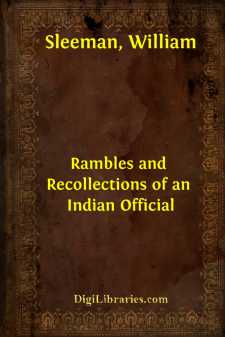Categories
- Antiques & Collectibles 13
- Architecture 36
- Art 48
- Bibles 22
- Biography & Autobiography 813
- Body, Mind & Spirit 141
- Business & Economics 28
- Children's Books 12
- Children's Fiction 9
- Computers 4
- Cooking 94
- Crafts & Hobbies 4
- Drama 346
- Education 46
- Family & Relationships 57
- Fiction 11826
- Games 19
- Gardening 17
- Health & Fitness 34
- History 1377
- House & Home 1
- Humor 147
- Juvenile Fiction 1873
- Juvenile Nonfiction 202
- Language Arts & Disciplines 88
- Law 16
- Literary Collections 686
- Literary Criticism 179
- Mathematics 13
- Medical 41
- Music 40
- Nature 179
- Non-Classifiable 1768
- Performing Arts 7
- Periodicals 1453
- Philosophy 64
- Photography 2
- Poetry 896
- Political Science 203
- Psychology 42
- Reference 154
- Religion 513
- Science 126
- Self-Help 83
- Social Science 81
- Sports & Recreation 34
- Study Aids 3
- Technology & Engineering 59
- Transportation 23
- Travel 463
- True Crime 29
Rambles and Recollections of an Indian Official
by: William Sleeman
Description:
Excerpt
EDITOR'S PREFACE (1893)
The Rambles and Recollections of an Indian Official, always a costly book, has been scarce and difficult to procure for many years past. Among the crowd of books descriptive of Indian scenery, manners, and customs, the sterling merits of Sir William Sleeman's work have secured it pre-eminence, and kept it in constant demand, notwithstanding the lapse of nearly fifty years since its publication. The high reputation of this work does not rest upon its strictly literary qualities. The author was a busy man, immersed all his life in the practical affairs of administration, and too full of his subject to be careful of strict correctness of style or minute accuracy of expression. Yet, so great is the intrinsic value of his observations, and so attractive are the sincerity and sympathy with which he discusses a vast range of topics, that the reader refuses to be offended by slight formal defects in expression or arrangement, and willingly yields to the charm of the author's genial and unstudied conversation.
It would be difficult to name any other book so full of instruction for the young Anglo-Indian administrator. When this work was published in 1844 the author had had thirty-five years' varied experience of Indian life, and had accumulated and assimilated an immense store of knowledge concerning the history, manners, and modes of thought of the complex population of India. He thoroughly understood the peculiarities of the various native races, and the characteristics which distinguish them from the nations of Europe; while his sympathetic insight into Indian life had not orientalized him, nor had it ever for one moment caused him to forget his position and heritage as an Englishman. This attitude of sane and discriminating sympathy is the right attitude for the Englishman in India.
To enumerate the topics on which wise and profitable observations will be found in this book would be superfluous. The wine is good, and needs no bush. So much may be said that the book is one to interest that nondescript person, the general reader in Europe or America, as well as the Anglo-Indian official. Besides good advice and sound teaching on matters of policy and administration, it contains many charming, though inartificial, descriptions of scenery and customs, many ingenious speculations, and some capital stories. The ethnologist, the antiquary, the geologist, the soldier, and the missionary will all find in it something to suit their several tastes.
In this edition the numerous misprints of the original edition have been all, and, for the most part, silently corrected. The extremely erratic punctuation has been freely modified, and the spelling of Indian words and names has been systematized. Two paragraphs, misplaced in the original edition at the end of Chapter 48 of Volume I, have been removed, and inserted in their proper place at the end of Chapter 47; and the supplementary notes printed at the end of the second volume of the original edition have been brought up to the positions which they were intended to occupy....



